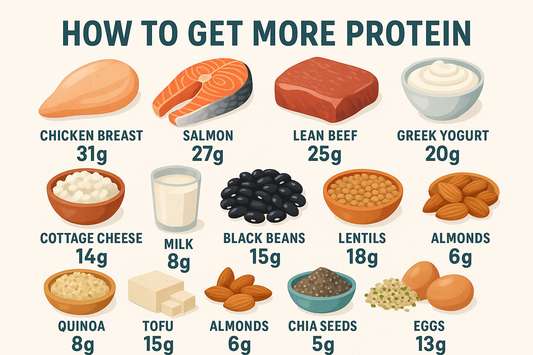How to Lose Fat the Fastest: 7 Effective Strategies for Quick Results
Introduction to Losing Weight
Achieving effective weight loss and reducing body fat requires a comprehensive approach that integrates healthy eating practices, regular exercise protocols, and strategic lifestyle modifications to support sustainable fat loss. The fundamental principle underlying successful weight reduction involves creating a calorie deficit through the systematic reduction of caloric intake while simultaneously increasing energy expenditure through structured physical activity.
Understanding the importance of losing weight extends beyond aesthetic considerations to encompass significant health benefits that can dramatically improve quality of life and reduce disease risk. The health benefits of losing weight and maintaining a healthy weight include substantial reductions in the risk of developing chronic diseases such as type 2 diabetes, cardiovascular disease, and metabolic syndrome, while simultaneously improving energy levels, sleep quality, and overall well-being.
Targeting specific areas such as belly fat and visceral fat becomes particularly important from a health perspective, as these adipose deposits are strongly correlated with increased risk of heart disease, insulin resistance, and inflammatory conditions associated with obesity. Research demonstrates that even modest weight reductions of 5-10% of initial body weight can produce meaningful improvements in metabolic health markers and disease risk factors.
Incorporating structured physical activity and comprehensive exercise routines into daily lifestyle patterns serves multiple functions in supporting weight loss goals. Regular exercise not only helps burn calories during activity periods but also enhances metabolic rate, preserves lean muscle mass during caloric restriction, and improves insulin sensitivity, all of which contribute to more efficient fat loss and long-term weight management success.
Healthy Eating for Weight Loss
Establishing a foundation of nutritionally sound eating patterns represents the cornerstone of effective fat loss strategies. A balanced dietary approach that emphasizes whole grains, fruits, and vegetables while incorporating specific macronutrients and micronutrients in optimal proportions can significantly support fat loss objectives while promoting overall health and metabolic function.
The strategic incorporation of protein-rich foods, including high-quality dairy products and healthy fats, alongside principles derived from Mediterranean diet research, has been consistently shown to promote satiety, preserve lean muscle mass during caloric restriction, and support sustainable weight loss. Protein intake should typically constitute 25-30% of total daily calories during active fat loss phases to optimize muscle protein synthesis and thermogenesis.
Reducing consumption of sugary drinks and refined carbohydrates becomes crucial for fat loss success, as these processed foods often lack essential fiber and nutrients while producing rapid blood glucose elevations and subsequent insulin responses that can promote fat storage. The final product of refined carbohydrate processing typically results in foods with higher glycemic indices that can disrupt appetite regulation and energy balance.
Implementing portion control strategies and selecting nutrient-dense, lower-calorie food options can help create the caloric deficit necessary for fat loss while ensuring adequate micronutrient intake. This approach involves choosing foods that provide maximum nutritional value per calorie consumed, thereby supporting metabolic health while facilitating weight reduction.
Optimizing meal timing by avoiding late-night eating and maintaining appropriate intervals between final meals and bedtime can support both fat loss efforts and sleep quality. Research suggests that consuming calories earlier in the day and allowing adequate time for digestion before sleep can improve metabolic efficiency and hormone regulation.

Exercise for Weight Loss
Strength Training
Implementing comprehensive strength training and resistance training protocols into exercise routines provides essential stimulus for preserving and building lean muscle mass while supporting metabolic rate during caloric restriction. The inclusion of progressive resistance training using external weights, bodyweight exercises, or resistance bands creates the mechanical tension necessary to maintain muscle tissue during fat loss phases.
Compound exercises such as push-ups, squats, lunges, and deadlifts offer superior efficiency for calorie expenditure and muscle activation by engaging multiple muscle groups simultaneously. These movements not only burn calories during exercise sessions but also create metabolic demands that continue post-exercise through increased protein synthesis and muscle recovery processes.
The combination of strength training with aerobic exercise protocols has been demonstrated to produce superior body composition changes compared to either modality alone. This integrated approach maximizes both caloric expenditure and muscle preservation while improving cardiovascular health and functional movement capacity.
Focusing exercise selection on compound movements that recruit large muscle groups can significantly increase total calorie burn during training sessions while improving functional strength and movement patterns. These exercises provide the greatest return on time investment and create the hormonal environment most conducive to fat loss and muscle preservation.
Systematic incorporation of strength training into weekly exercise routines should follow progressive overload principles, with gradual increases in resistance, volume, or training frequency to ensure continued adaptation and improvement in both strength and body composition parameters.
High Intensity Interval Training
High Intensity Interval Training (HIIT) represents one of the most time-efficient and effective exercise modalities for accelerating fat loss while improving cardiovascular fitness. HIIT protocols involve alternating periods of high-intensity exercise with active recovery phases, creating significant metabolic demands that can elevate calorie burn both during and after exercise sessions.
The physiological mechanisms underlying HIIT's effectiveness include enhanced post-exercise oxygen consumption (EPOC), improved insulin sensitivity, and increased fat oxidation capacity. These adaptations result in elevated metabolic rate for hours following exercise completion, contributing to greater total daily energy expenditure compared to steady-state cardio of similar duration.
Effective HIIT workouts can incorporate various exercise modalities including sprint intervals, burpees, jump squats, cycling intervals, and rowing protocols. The key principle involves working at 80-95% of maximum heart rate during high-intensity phases while maintaining 50-65% intensity during recovery periods to optimize the training stimulus.
Research demonstrates that HIIT protocols can be particularly effective for reducing waist circumference and targeting abdominal fat deposits, making this training method especially valuable for individuals seeking to improve both health markers and body composition. The ability of HIIT to burn more calories than traditional steady-state exercise in equivalent time periods makes it ideal for time-constrained individuals.
The versatility of HIIT allows for modification based on individual fitness levels and can be seamlessly integrated into existing exercise routines. Beginners can start with longer recovery periods and shorter work intervals, while advanced individuals can manipulate work-to-rest ratios to increase training intensity and metabolic demands.

Sleep and Recovery for Fat Loss
Adequate sleep duration and quality represent critical yet often overlooked components of effective fat loss strategies. Research consistently demonstrates that insufficient sleep disrupts hormonal regulation, particularly affecting leptin and ghrelin levels, which directly influence appetite control and metabolic function. Optimal sleep duration of 7-9 hours per night supports proper hormone production and metabolic recovery processes essential for fat loss.
Sleep deprivation has been shown to significantly impair glucose metabolism, increase cortisol production, and reduce growth hormone release, all of which can compromise fat loss efforts and promote muscle catabolism. The relationship between sleep quality and body composition regulation involves complex interactions between circadian rhythms, metabolic hormone production, and cellular repair processes that occur primarily during deep sleep phases.
Creating an optimal sleep environment involves establishing consistent sleep-wake cycles, minimizing blue light exposure before bedtime, maintaining appropriate room temperature, and developing relaxation routines that promote parasympathetic nervous system activation. These environmental and behavioral modifications can significantly improve both sleep quality and duration.
Recovery protocols extending beyond sleep include stress management techniques, active recovery sessions, and adequate nutrition to support training adaptations and metabolic function. Chronic stress and inadequate recovery can elevate cortisol levels, promote fat storage, and impair exercise performance, thereby undermining fat loss efforts through multiple physiological pathways.

Hydration and Its Role in Fat Loss
Proper hydration status plays a fundamental role in supporting optimal metabolic function and fat loss through multiple physiological mechanisms. Adequate water intake supports lipolysis (fat breakdown), enhances exercise performance, improves thermoregulation, and can contribute to appetite regulation by promoting satiety and reducing confusion between thirst and hunger signals.
Research indicates that even mild dehydration (2-3% body weight loss) can significantly impair metabolic function, reduce exercise performance, and increase perceived exertion during physical activity. These effects can compromise training quality and reduce total daily energy expenditure, thereby slowing fat loss progress and undermining exercise adherence.
Optimal hydration strategies involve consuming approximately 35-40ml of water per kilogram of body weight daily, with additional intake required to compensate for fluid losses during exercise and in warm environments. Pre-exercise hydration, fluid replacement during prolonged activity, and post-exercise rehydration protocols become particularly important for maintaining performance and supporting recovery.
The strategic timing of fluid intake can also support fat loss efforts, with pre-meal water consumption potentially enhancing satiety and reducing caloric intake. Additionally, replacing caloric beverages with water eliminates a significant source of empty calories while supporting proper hydration status and metabolic function throughout the day.
Additional Strategies for Quick Results
Sleep optimization extends beyond duration to encompass sleep quality factors including sleep architecture, circadian rhythm regulation, and sleep hygiene practices. Avoiding sleep deprivation through consistent sleep schedules and environmental modifications can significantly enhance fat loss results while supporting overall health and exercise recovery processes.
Stress reduction techniques including meditation, yoga, deep breathing exercises, and mindfulness practices can help mitigate the negative effects of chronic stress on fat loss. Elevated cortisol levels from chronic stress can promote abdominal fat storage, increase appetite, and impair insulin sensitivity, making stress management a crucial component of comprehensive fat loss strategies.
The inclusion of healthy fats such as olive oil, avocados, nuts, and fatty fish in daily nutrition plans can support hormone production, enhance satiety, and improve the absorption of fat-soluble vitamins. These healthy fat sources provide essential fatty acids while contributing to meal satisfaction and adherence to caloric targets.
Eliminating caloric beverages including sugary drinks, fruit juices, and alcohol can significantly reduce daily caloric intake while improving insulin sensitivity and metabolic health. Replacing these beverages with water, unsweetened tea, or black coffee can create substantial caloric deficits without affecting satiety or nutritional quality.
Increasing non-exercise activity thermogenesis (NEAT) through simple lifestyle modifications such as taking stairs, parking farther away, walking meetings, and increasing daily movement can contribute significantly to total daily energy expenditure. These small changes can accumulate to meaningful increases in caloric burn over time.
Long-term weight maintenance requires transitioning from active fat loss protocols to sustainable lifestyle changes that can be maintained indefinitely. This transition involves gradually increasing caloric intake while maintaining beneficial exercise and lifestyle habits to prevent weight regain and support continued health improvements.

Social Support and Accountability
Establishing robust social support networks and accountability systems has been consistently identified as a critical factor in successful long-term weight management. Research demonstrates that individuals with strong social support systems are significantly more likely to achieve and maintain weight loss goals compared to those attempting behavior change in isolation.
Professional guidance from registered dietitians, certified personal trainers, and healthcare providers can provide expert knowledge, personalized program design, and ongoing monitoring to optimize fat loss results while ensuring safety and nutritional adequacy. These professionals can adapt programs based on individual responses and help navigate challenges that commonly arise during weight loss efforts.
Peer support through weight loss groups, exercise partnerships, or online communities can provide motivation, shared experiences, and practical strategies for overcoming obstacles. The combination of professional expertise and peer support creates a comprehensive support system that addresses both technical and emotional aspects of behavior change.
Progress monitoring and celebration of milestones, whether through self-tracking or sharing with support networks, helps maintain motivation and provides objective feedback about program effectiveness. Regular assessment allows for timely adjustments and reinforces positive behaviors that contribute to long-term success.
The implementation of structured accountability measures, including regular check-ins, progress photos, body composition assessments, and performance metrics, provides external motivation and helps maintain consistency during challenging periods when intrinsic motivation may fluctuate.
Creating a Weight Loss Plan
Successful fat loss requires systematic planning that integrates realistic goal setting, comprehensive strategy selection, and regular monitoring protocols. Effective weight loss plans should establish specific, measurable, achievable, relevant, and time-bound (SMART) goals that provide clear direction while maintaining motivation throughout the process.
Incorporating exercise variety through different training modalities, activities, and progressions helps prevent boredom, promotes continued adaptation, and reduces injury risk. A well-designed exercise program should include cardiovascular training, resistance training, flexibility work, and recreational activities that support adherence and enjoyment.
Nutritional planning should emphasize sustainable eating patterns rather than restrictive dieting approaches that often lead to rebound weight gain. Balanced nutrition plans that include adequate protein, healthy fats, and nutrient-dense carbohydrates while maintaining appropriate caloric deficits provide the foundation for successful fat loss and long-term maintenance.
Professional consultation with healthcare providers, particularly for individuals with medical conditions or significant weight loss goals, ensures safe and appropriate program design. Medical supervision becomes especially important for individuals with diabetes, cardiovascular disease, or other conditions that may be affected by rapid dietary or exercise changes.
Regular program assessment and modification based on progress monitoring, adherence patterns, and changing circumstances ensures continued effectiveness and prevents stagnation. Successful weight loss plans remain flexible and responsive to individual needs while maintaining core principles that drive fat loss.

Overcoming Challenges
Addressing psychological and behavioral barriers to weight loss requires recognition that eating disorders or disordered eating patterns may require specialized professional intervention. Individuals with histories of eating disorders should seek guidance from qualified mental health professionals before beginning weight loss programs to ensure safe and appropriate approaches.
Professional support from registered healthcare providers or registered dietitians becomes particularly valuable when medical conditions, medications, or complex health situations affect weight loss efforts. These professionals can provide medical oversight, specialized nutrition guidance, and coordination with other healthcare providers as needed.
Stress management through evidence-based techniques including meditation, yoga, cognitive behavioral therapy, or other relaxation practices can address emotional eating patterns and reduce stress-related barriers to weight loss. Chronic stress significantly impacts hormonal regulation and can undermine even well-designed fat loss programs.
Adopting a progress-focused rather than perfection-oriented mindset helps individuals navigate inevitable setbacks and maintain long-term motivation. Understanding that weight loss is rarely linear and that temporary plateaus or minor setbacks are normal parts of the process helps maintain psychological resilience.
Celebrating incremental progress and non-scale victories including improved energy, better sleep, enhanced mood, or increased strength helps maintain motivation when scale weight changes may be minimal. These broader health improvements often precede visible body composition changes and provide important feedback about program effectiveness.
Conclusion
Effective fat loss requires the systematic integration of evidence-based strategies encompassing nutrition optimization, structured exercise protocols, and comprehensive lifestyle modifications. The combination of caloric deficit creation through dietary management and increased energy expenditure through physical activity provides the fundamental framework for successful weight reduction.
The seven strategies outlined—creating appropriate caloric deficits, optimizing protein intake, implementing HIIT protocols, incorporating strength training, prioritizing sleep and recovery, maintaining proper hydration, and establishing social support systems—work synergistically to maximize fat loss while preserving metabolic health and lean muscle mass.
Sustainable weight loss success depends on viewing the process as a long-term lifestyle transformation rather than a temporary intervention. The integration of healthy eating patterns, regular physical activity, and stress management techniques into daily routines creates the foundation for both initial fat loss and long-term weight maintenance.
Individual customization of these strategies based on personal preferences, limitations, and circumstances increases adherence and improves outcomes. The most effective fat loss approach is one that can be maintained consistently over time while supporting overall health and quality of life improvements that extend far beyond simple weight reduction.












